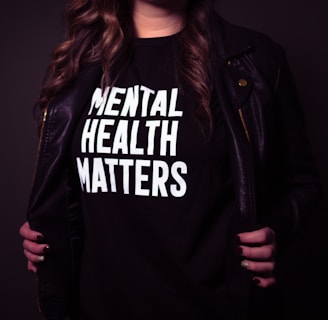Mental Health: A Guide to Understanding and Managing Depression, Anxiety, Stress, Mindfulness, and Therapy
Struggling with mental health challenges? This comprehensive guide offers insights into depression, anxiety, stress, mindfulness, and therapy. Learn how to recognize the signs, understand the causes, and discover effective strategies for managing these conditions. Gain practical tips on mindfulness techniques, therapeutic approaches, and self-care practices to improve your overall well-being.
10/18/20244 min read


Mental health is a complex and often misunderstood topic. It is important to understand that mental health is just as important as physical health. In fact, the two are often interconnected.
This blog post will provide an overview of some of the most common mental health conditions, including depression, anxiety, and stress. It will also discuss mindfulness and therapy as effective tools for managing these conditions.
What is Mental Health?
Overall psychological well-being is known as mental health. Our thoughts, emotions, and behaviors are all included. Our ability to manage stress, interact with others, and make wise decisions are all impacted. All phases of life, from infancy and adolescence to adulthood, place importance on mental wellness.


What are Some Common Mental Health Conditions?
Some of the most common mental health conditions include:
Depression: Depression is a mood disorder that causes a persistent feeling of sadness, emptiness, or hopelessness. It can also lead to a loss of interest in activities that were once enjoyable.
Anxiety: Anxiety is a feeling of fear or worry that can be overwhelming and interfere with daily life. There are several types of anxiety disorders, including generalized anxiety disorder, panic disorder, and social anxiety disorder.
Stress: Stress is a normal reaction to a challenge or demand. However, too much stress can lead to physical and emotional problems.
What are the Signs and Symptoms of Mental Health Conditions?
The signs and symptoms of mental health conditions can vary depending on the individual. However, some common signs and symptoms include:
Changes in mood: Feeling sad, anxious, or irritable
Changes in behavior: Withdrawing from social activities, losing interest in hobbies, or experiencing changes in appetite or sleep patterns
Physical symptoms: Headaches, stomachaches, or fatigue
What Causes Mental Health Conditions?
The causes of mental health conditions are complex and not fully understood. However, a number of factors may contribute to the development of these conditions, including:
Genetics: Mental health conditions often run in families.
Brain chemistry: Changes in brain chemistry can affect mood, thoughts, and behaviors.
Life experiences: Traumatic life events, such as abuse or loss, can increase the risk of developing mental health conditions.
Environmental factors: Stressful or unhealthy environments can also contribute to mental health problems.


How Can Mental Health Conditions Be Treated?
There are a number of effective treatments for mental health conditions. The best treatment for you will depend on your individual needs.
Some common treatments for mental health conditions include:
Therapy: Talk therapy is one kind of treatment that can assist you in comprehending and controlling your emotions. Cognitive behavioral therapy (CBT), interpersonal therapy (IPT), and psychodynamic therapy are just a few of the several varieties of treatment available.
Medication: The symptoms can be treated with medication.
of a few mental health issues. Medication comes in a variety of forms, such as mood stabilizers, antidepressants, and anxiety reducers.
Mindfulness: The practice of mindfulness is focusing attention on the here and now without passing judgment. You can benefit from mindfulness, lessen tension and enhance general wellbeing.
Self-care: While self-care is crucial for all individuals, those with mental health disorders need it even more. Self-care practices might include things like eating a balanced diet, exercising frequently, and getting enough sleep.


What Can You Do to Help Someone with a Mental Health Condition?
If you are concerned about someone's mental health, there are a number of things you can do to help.
Listen without judgment: It is important to let the person know that you are there for them and that you care.
Encourage them to seek help: If the person is struggling with their mental health, encourage them to seek professional help.
Offer your support: Let the person know that you are there for them and that you will support them in whatever way you can.
Conclusion
Mental health is a complex and important topic. It is important to understand that mental health is just as important as physical health.
If you are struggling with your mental health, there are a number of effective treatments available. It is important to seek help if you are struggling.
There are also a number of things you can do to help someone who is struggling with their mental health.
Additional Resources
National Alliance on Mental Illness (NAMI): https://www.nami.org/
Substance Abuse and Mental Health Services Administration (SAMHSA): https://www.samhsa.gov/
American Psychological Association (APA): https://www.apa.org/
I hope this blog post has been helpful. If you have any questions, please feel free to leave a comment below.
Disclaimer: This blog post is for informational purposes only and should not be construed as medical advice. If you are struggling with your mental health, please consult with a qualified mental health professional.
Simplified Healthy Living
Tips for a healthier lifestyle, one step at a time.
© 2024. All rights reserved.
